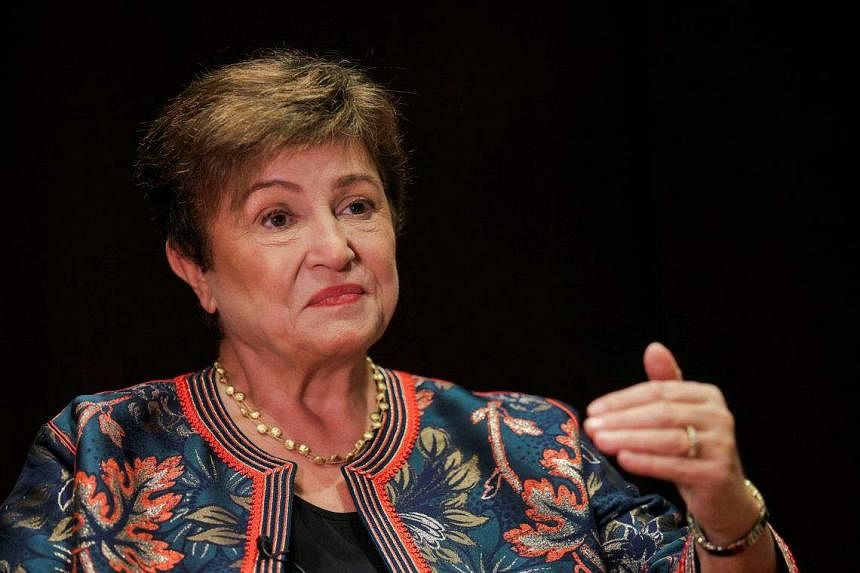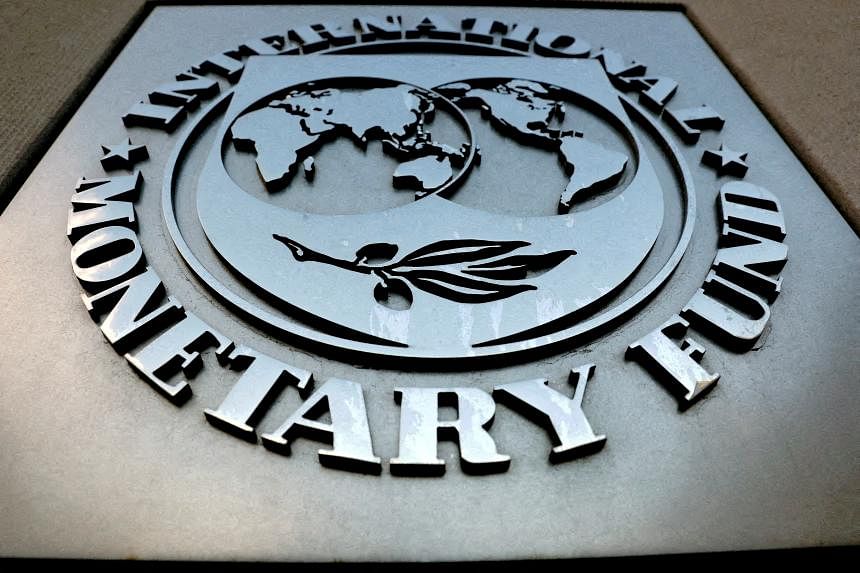The International Monetary Fund (IMF) is lending nearly a record amount to almost 100 countries, evidence of its growing role as a backstop against the financial and political dangers of the post-pandemic world.
Primarily because of surging borrowing costs and conflicts, the IMF has had to put out more economic fires, including major blazes in Ukraine, Egypt and elsewhere in Africa as well as in Argentina and Pakistan.
IMF credit outstanding, a key measure of money disbursed by the Washington-based fund, climbed to about US$151 billion (S$202.2 billion) at the end of February, according to Bloomberg calculations of IMF data. The IMF reports the figure as 113 billion units of its foreign exchange reserve assets, called special drawing rights.
That is likely to rise further after the fund finalises upsizing its support for Egypt to US$8 billion, likely in March, pushing the total towards a recent record in August.
Although the pandemic is drifting into the past, “countries are still going through pressure and strain”, said Mr Masood Ahmed, president of the Centre for Global Development think-tank and a former head of the IMF’s Middle East department.
“The world has become more geopolitically fraught. There are more tensions and conflicts,” he added.
More than 50 of those borrowers have active loan or guarantee programmes – about a quarter of the fund’s members. While that is down from 90 during the depths of Covid-19 – and largely with smaller zero-interest emergency loans – it is the most ever under the fund’s normal borrowing programmes.
Ms Kristalina Georgieva, the fund’s managing director since 2019, has warned that the widening income gap between rich and poor countries is a major factor fuelling instability. The other is conflict.
“We see trust diminishing among nations too, with geopolitical tensions on the rise,” she said in a speech last week.
“A fragmented world would be poorer and less secure,” she said, referring to the effects of Russia’s invasion of Ukraine, the Israel-Hamas war and “many more that often do not make the headlines”.
Ms Georgieva has touted the fund’s US$1 trillion in liquidity support, including money available but not used.
By comparison, the amount currently outstanding is relatively small – less than 0.2 per cent of the global US$100 trillion-plus economy – but a testament to the IMF’s central role of policing and managing the global financial system designed by the US in the wake of World War II.
Given those origins, it is not surprising that many of the fund’s borrowers – including some of its biggest, Argentina, Egypt and Ukraine – overlap with Washington’s top geopolitical priorities.

“The US has seen the fund as a vital tool for promoting its own national security, economic welfare and interests in financial stability around the world,” said Mr Mark Sobel, a former US Treasury Department official who spent almost two decades focused on international policy, especially the IMF. “Western and certainly US officials view the IMF as a first responder,” he added.
Shoring up Ukraine against Russia provides a prominent example, with the fund voting to revamp its rules to allow lending to a country at war, a decision made possible only by the backing of the US, which has a veto-proof 16.5 per cent voting share.
The two other biggest borrowers – accounting for a combined US$58 billion, nearly half the total outstanding credit – are Argentina and Egypt, long-time clients of the fund.
The IMF declined to elaborate on its priorities or on loan details.
Argentina’s recently elected president, Mr Javier Milei, is currently pushing through major economic reforms sought by the IMF, such as shoring up foreign exchange and raising revenue.
IMF lending to Egypt, at the same time, is growing, but only a fraction of the more than US$50 billion pledged globally to shore up the country’s teetering economy, a strategic linchpin at the intersection of Africa and the Middle East, and bordering the Gaza Strip and Israel.
“Egypt is not by accident getting all those programmes even though they haven’t reformed the role of the military in the economy,” said Mr Martin Muhleisen, a former director at the IMF’s key strategy, policy and review department.
“There are clearly geopolitical considerations at work.”
BLOOMBERG

